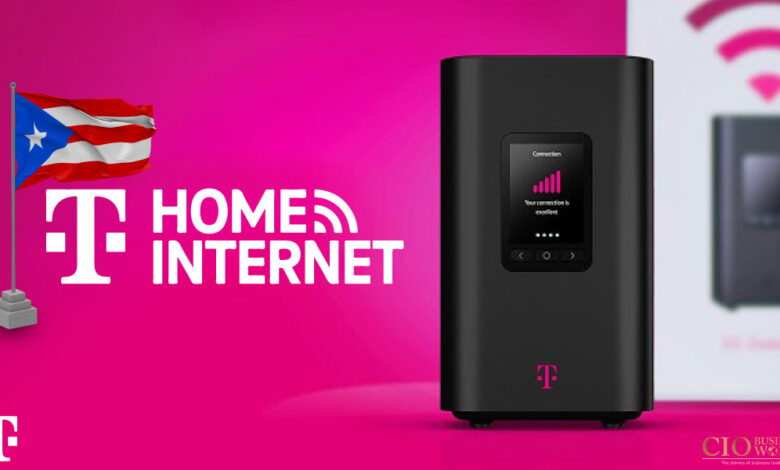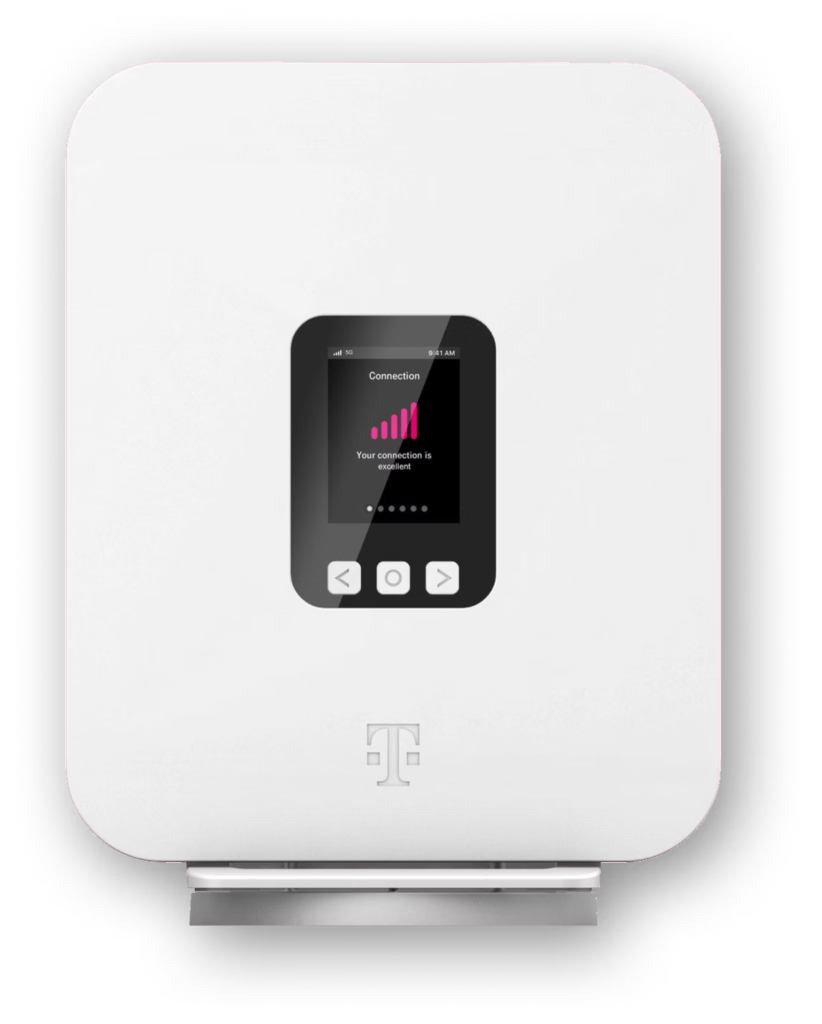T-Mobile Home Internet: A Comprehensive Guide to Fast, Affordable, and Reliable Internet for Your Home 2024

Introduction to T-Mobile Home Internet
T-Mobile Home Internet is a unique broadband solution offering high-speed internet using T-Mobile’s extensive 5G and LTE networks. While traditional internet providers rely on cable or fiber infrastructure, T-Mobile delivers internet wirelessly, reaching areas that may have limited options. This flexibility, combined with competitive pricing, makes T-Mobile Home Internet an appealing choice for users looking for reliable internet access.
What Makes T-Mobile Home Internet Different?

Unlike traditional ISPs that require extensive cable installations, T-Mobile Home Internet uses 5G and LTE networks, making the setup process quick and simple. Internet customers receive a wireless gateway that connects directly to T-Mobile’s network, offering broadband without needing wired connections.
This innovative approach eliminates some of the hassles of conventional internet service, like scheduling installation appointments or dealing with slow, outdated infrastructure. The result? A faster, more flexible, and accessible internet service.
Who is T-Mobile Home Internet For?
T-Mobile Home Internet is designed for people who need a flexible, hassle-free internet service that doesn’t depend on conventional cable or fiber installations. It’s especially appealing to users in rural or underserved areas, where wired broadband options are limited. T-Mobile’s use of 5G technology also means that customers can enjoy high-speed internet in regions where it was previously unavailable.
- How T-Mobile Home Internet Works
A Brief Look at 5G and LTE Technology
T-Mobile Home Internet relies on both 5G and LTE technologies to deliver fast internet speeds. 5G, the latest generation of mobile network technology, provides faster speeds, lower latency, and higher data capacity than previous generations. LTE, or Long-Term Evolution, is a 4G technology that offers widespread coverage with solid speed and reliability.
How T-Mobile Utilizes 5G for Home Internet
T-Mobile leverages its 5G network to deliver broadband speeds comparable to many traditional wired connections. By using wireless technology, T-Mobile bypasses the need for laying extensive cables, which reduces costs and speeds up the installation process. This wireless setup makes Internet an ideal solution for areas where laying fiber isn’t feasible.
- T-Mobile Home Internet Plans and Pricing
Overview of Current Pricing
T-Mobile offers a straightforward pricing model for its home internet service. As of the latest information, there is generally a single plan available for T-Mobile Home Internet at around $50 per month with AutoPay. Unlike many ISPs, T-Mobile’s plan includes all taxes and fees, making it easy to understand and predict your monthly costs.
What’s Included in the Monthly Cost
The monthly fee covers the gateway equipment, unlimited data, and access to both the LTE and 5G networks. There are no hidden fees for installation, equipment rental, or data overages, so users can enjoy their internet service without unexpected costs. This transparent pricing is one of T-Mobile Home Internet’s most appealing aspects.
Any Additional Fees or Equipment Costs
T-Mobile’s approach means you don’t have to worry about renting or purchasing additional hardware. The provided gateway is included in the cost, and there are typically no extra setup or activation fees.
- Setup Process for T-Mobile Home Internet
Getting Started with the T-Mobile Gateway

When you sign up for T-Mobile Home Internet, you’ll receive a gateway device that serves as your router and modem. This device connects directly to T-Mobile’s network and broadcasts a Wi-Fi signal throughout your home. No technician is needed, and setup is quick and easy.
Setting Up the Gateway at Home
Setting up the T-Mobile gateway involves plugging it into a power source and positioning it in an optimal location for signal strength. The T-Mobile app walks users through each step, including finding the best placement for the gateway to maximize coverage and speed.
Step-by-Step Installation Guide
- Unbox the Gateway: Remove all packaging and ensure you have the power adapter and other necessary cords.
- Find a Location: Place the gateway near a window or open area to improve signal strength.
- Power On the Device: Plug the gateway into a power outlet and turn it on.
- Connect to Wi-Fi: Use the T-Mobile app or follow the instructions on the gateway’s display to connect your devices to the network.
- T-Mobile Home Internet Speed and Performance
Expected Speeds and Variability
T-Mobile advertises speeds ranging from 35 Mbps to 115 Mbps, though speeds can vary depending on location, network congestion, and device compatibility. Speeds are generally suitable for common online activities like streaming, video calls, and browsing.
Factors that Impact Speed
Several factors influence the speed and reliability of T-Mobile Home Internet. Proximity to a 5G tower, the number of connected devices, and the time of day can all affect speeds. Users in densely populated areas may experience reduced speeds during peak hours due to network congestion.
Typical Performance for Different Activities
- Streaming: T-Mobile Home Internet supports smooth streaming for services like Netflix, Hulu, and YouTube.
- Gaming: While suitable for casual gaming, Internet’s latency may be slightly higher than wired options.
- Video Calls: The connection generally supports clear video calls, though signal strength can impact quality.
Pros and Cons of T-Mobile Home Internet
Key Benefits
- No Contracts: T-Mobile Home Internet doesn’t require a long-term commitment.
- Transparent Pricing: With no hidden fees, users know exactly what they’ll pay each month.
- Easy Setup: Self-installation makes it accessible to non-technical users.
Potential Drawbacks
- Variable Speeds: Users may experience slower speeds during peak hours.
- Limited Availability: T-Mobile Home Internet isn’t yet available in all areas.
- Latency for Gaming: The latency is slightly higher than wired connections, which could impact serious gamers.
- Comparing T-Mobile Home Internet to Traditional ISPs
T-Mobile vs. Cable Providers
Cable providers offer high speeds but may require contracts and equipment rental fees. In contrast, T-Mobile Home Internet offers competitive speeds with a no-contract option and no additional equipment fees.
T-Mobile vs. Fiber Providers
Fiber internet generally offers higher speeds and lower latency than Internet. However, fiber isn’t available in many regions, giving T-Mobile an edge in areas without fiber infrastructure.
Cost and Performance Comparison
While fiber offers the best performance, it can be costly and limited in availability. T-Mobile Home Internet balances cost, speed, and accessibility, making it an ideal choice for many households.



